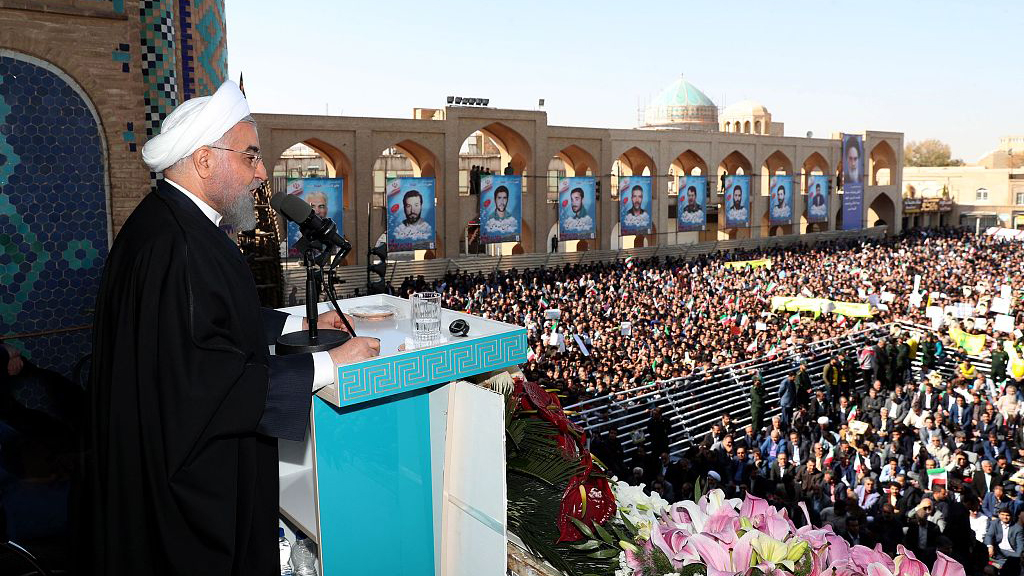00:34

Iran has discovered a new oilfield in the country's south with over 50 billion barrels of crude oil, President Hassan Rouhani announced on Sunday, a find that could boost the country's proven reserves by a third as it struggles to sell energy abroad over U.S. sanctions.
Rouhani made the announcement in a speech in the desert city of Yazd. He said the field was located in Iran's southern Khuzestan province, home to its crucial oil industry. Some 53 billion barrels would be added to Iran's proven reserves of roughly 150 billion, he said, rounding up to about 35 percent of its total reserves.
The announcement comes as Iran faces crushing American sanctions after the U.S. pulled out of its nuclear deal with world powers last year.
"I am telling the White House that in the days when you sanctioned the sale of Iranian oil and pressured our nation, the country's dear workers and engineers were able to discover 53 billion barrels of oil in a big field," Rouhani said.
Iran currently has the world's fourth-largest proven deposits of crude oil and the world's second-largest deposits of natural gas. It shares a massive offshore field in the Persian Gulf with Qatar. If the size of the new oil field is proven to be accurate, Iran would climb to the third place in the global oil reserve ranking, just below Saudi Arabia.
The new oil field could become Iran's second-largest field after one containing 65 billion barrels in Ahvaz. The field spans 2,400 square kilometers, with the deposit some 80 meters deep, Rouhani said.
The new discovery would be a boost to Iran's economy, which suffered under the United States' economic sanctions after the U.S. withdrew from the Iran nuclear deal.
Under the sanctions, any company or government that buys Iran's oil would face sanctions from the U.S., the threat of which stopped billions of dollars in business deals and sharply depreciated Iran's currency, the rial.
European signatories to the deal have been trying to save the deal from collapsing, but Iran's recent decision to enrich uranium to five percent, a step back from its commitment under the Iran nuclear deal, punched another heavy blow to the deal.
The collapse of the nuclear deal coincided with a tense summer of mysterious attacks on oil tankers and Saudi oil facilities that the U.S. blamed on Iran. Tehran denied the allegations as "meaningless and incomprehensible."
(With input from agencies)